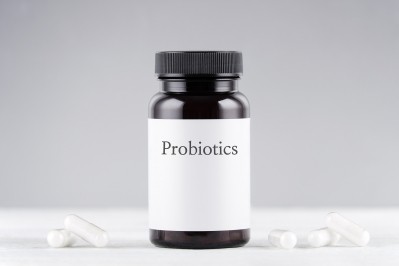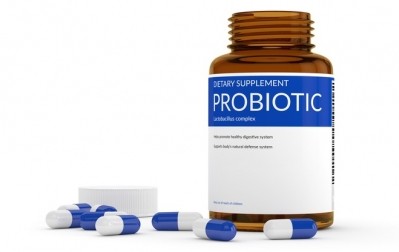USP Director hopeful that expert panel’s recent paper spurs interest in quality certifications
Dr Goldman, director of dietary supplements & herbal medicines-science at the US Pharmacopeia, spoke with us during the recent IPA World Congress + Probiota Americas, hosted by NutraIngredients-USA in association with the International Probiotics Association.
The USP Expert Panel, which is led by Dr Mary Ellen Sanders, recently published an extensive paper in Frontiers in Microbiology, which made strong proposals to boost consumer trust in the quality of commercial probiotic products, including third-party certification plus emerging methodologies useful for quality assessment.
Dr Goldman, who is a co-author on the paper, said that since publication, “There have certainly been a lot of people interested in the paper, have mentioned reading it, or have mentioned that it was important to them, so I’m hoping that longer term that will translate into more people being concerned about quality and getting quality certifications for their products.”
The paper also highlighted some ongoing challenges for the probiotics category.
“One of the issues is enumeration; how is that measured and what’s the best way to do that. Some of the other concerns are around correct identification, strain identification, and information around probiotics in general,” said Dr Goldman.
“It is very, very difficult right now to quantify the different species in a multi-species product after blending, because although you can in some cases identify them by PCR that they exist, it’s very hard to know what levels are actually in there.”
CFUs and AFUs
The paper’s authors also discussed the topic of colony forming units (CFUs) and Active Fluorescent Units (AFUs) when it comes to enumeration.
“CFUs are the colony forming units,” explained Dr Goldman, “and right now most of the clinical trials are related to colony forming units. Flow cytometry – or the Active Fluorescent Units [AFUs] – are not related to colony forming ability. They are more of a direct measure of whether the cell is alive, but not necessarily able to form colonies.
“So it’s not clear at this time, since the mechanism of action for many probiotics is not clear, whether the fact that they are able to form colonies or whether they are just ‘alive’ is enough. The definition says ‘alive’, but since the clinical trials are linked to CFU, it’s very hard to know what the appropriate measure is."
Dr Goldman added that CFU is a highly variable measurement, and it is time-consuming to do. On the other hand, flow cytometry (which measures AFU) is quicker and less variable. While the correlation between CFU and AFU is close to 1:1 in a fresh product, this correlation does not extend over the course of shelf-life and so work is needed to answer these issues.
The USP Expert panel work is ongoing, she said. Upcoming meetings will discuss validation of enumeration methods, next generation sequencing and how you validate ID using that, and other new technologies.
The panel will also be reviewing a number of new monographs, she said.
Key topics covered in the USP paper included:
Third-Party Verification, Certification and Qualification: Independent certification of probiotic products gives consumers confidence that the labeled products are safe and contain exactly what the package claims.
Quality Standards: Implementing requirements, specifications, guidelines or characteristics that are used consistently ensures products are fit for their intended purpose and consumers can be certain they are getting high-quality products every time they visit the shelf.
Probiotic Product Labels: Differing label requirements for probiotics from other food and supplements can result in a lack of vital information for the consumer. Manufacturers should take steps to include all necessary information to enable consumers to more appropriately select which products to buy.
Identity: The ability to identify a specific probiotic strain clinically demonstrated to provide specific benefits and differentiate from other strains is essential to empower consumers with the tools needed to make the most informed decision based on unique health and wellness needs.
Quantification: The amount of live probiotic strains in each product should be tested by the manufacturer to ensure the consumer gets the amount of probiotic strains that should be in the product.
Single Strain vs. Multiple Strain Products: Today’s probiotics tend to mention the entire microbial count without distinguishing the different strains in the blend. More progress toward enumeration is important to give consumers full visibility to what’s in their products.
Purity: Although dietary supplement manufacturers are responsible for using Good Manufacturing Practices to ensure the safety and quality of their products, there are certain specifications missing and changing regionally. More uniform standards must be introduced so consumers, regardless of location, can be sure they have access to quality products.
For more coverage and reaction to the paper, please click HERE.
















